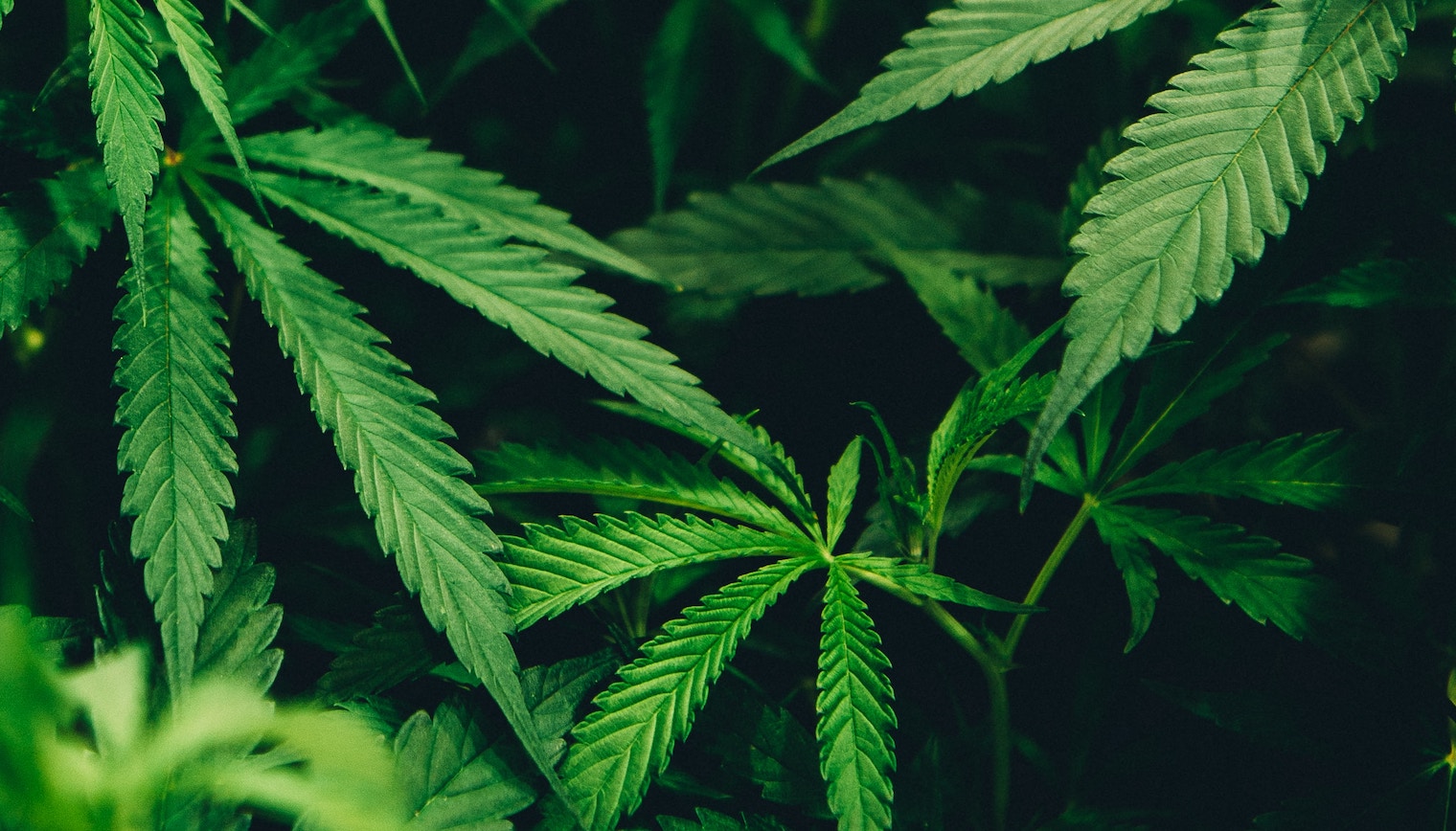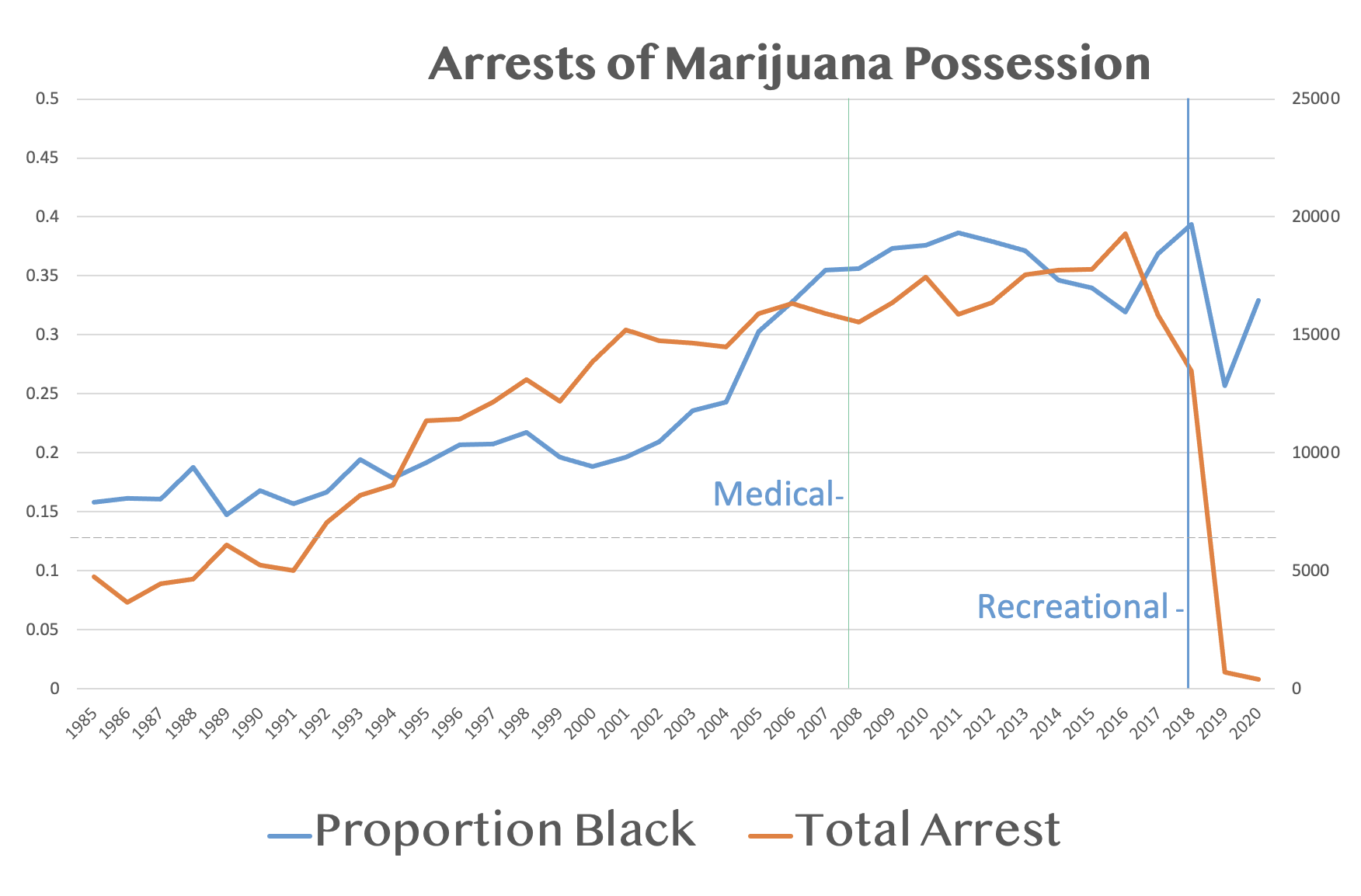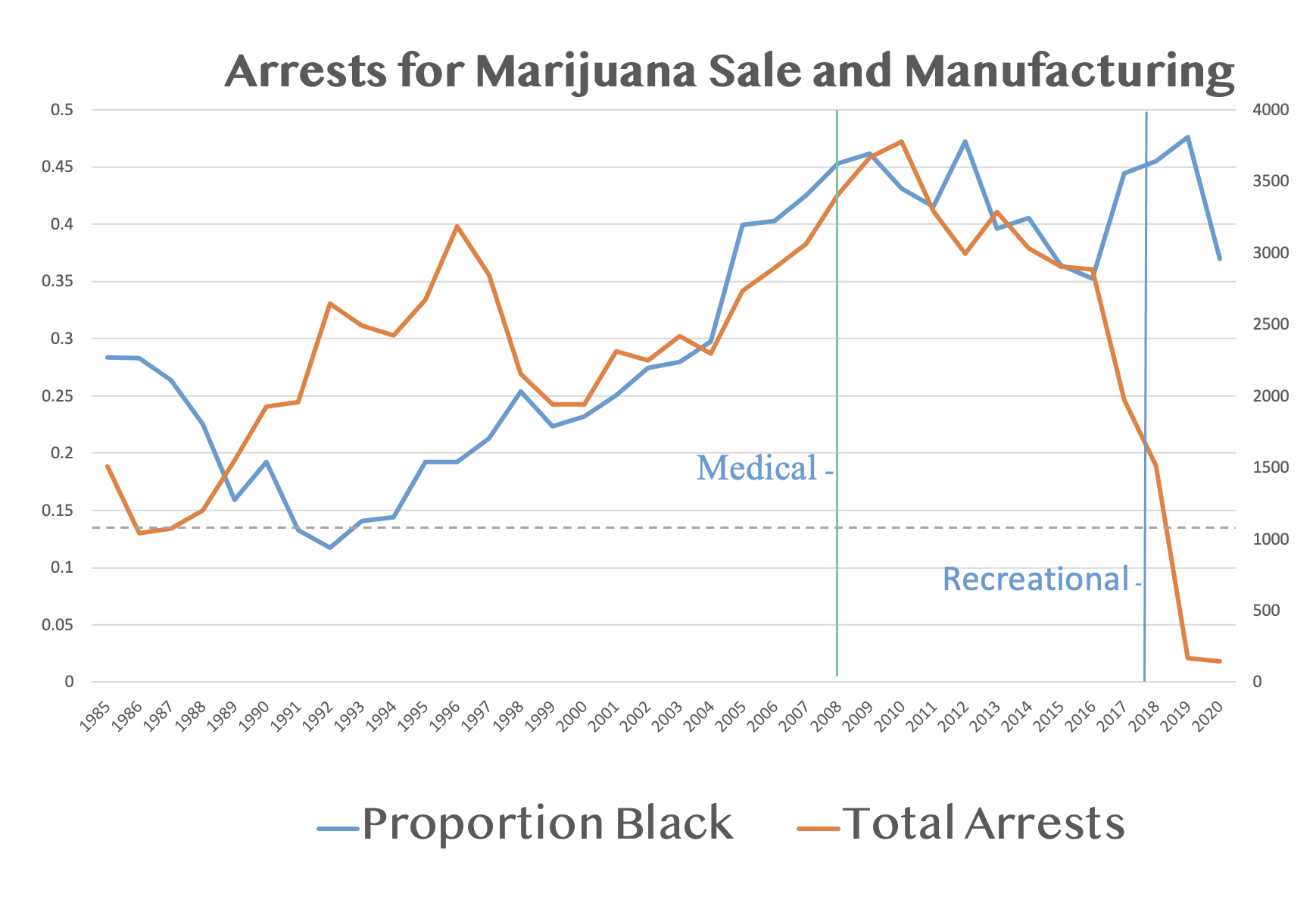Graduate student studies the effects of cannabis legalization on arrests in Michigan

Long have social commentators theorized that legalizing recreational cannabis would help curb the racial disparities resulting from the U.S.’s War on Drugs and reverse the nation’s decades-long trend of mass incarceration.
In 2018, cannabis was legalized in Michigan. Five years later, are fewer people in the state going to jail for marijuana?
According to the FBI’s Crime Data Explorer (CDE), 16,490 arrests were made in 2017 for possession in Michigan. In 2019, that number fell to 776. But the racial divide in arrests remained constant, and in some years, increased. And it’s not a strictly Michigan issue.

“Michigan is right in stride with states like Colorado and Washington that have reported findings on this issue, and I expect similar results with states that have yet to be examined,” said Jason Smith. “This appears to be a national trend where cannabis legalization is mostly benefiting white Americans.”
Smith, a Ph.D. student in sociology whose research interests include racial inequality in the criminal justice system, examined Michigan’s cannabis policies pre- and post-prohibition and their influence on arrests. He recently presented his findings at the Wayne State University Graduate Research Symposium.
“While legalization is a step in the right direction by massively reducing the total number of people arrested for cannabis, due to systemic racism in law enforcement practices, Black folks are still 2-3 times more likely to be arrested,” Smith said. “So, how can we implement cannabis policy reform that addresses these disparities? Beyond the criminalization aspect, we also see non-Whites being shut out of the retail and industry-side of legal cannabis as well.”

In 2016, Black Michiganders made up 35% of those arrested for manufacturing and selling cannabis, Smith reported. In 2019, that number rose to 48%.
“Studies have consistently shown that despite similar rates of use across different racial groups, Black and Hispanic individuals are disproportionately arrested and incarcerated for drug offenses, including cannabis. This suggests that police departments may be targeting certain communities over others, which has led to devastating consequences for people of color.”
Change starts with cannabis policy reform
Smith is currently developing a larger project with his faculty advisor, David Merolla, Ph.D., that will explore cannabis policy across all 50 states and widen the scope to measure political climate and racial threat. The goal is to provide insight on how states can create a fairer system post-prohibition.
“If we are going to end the ‘War on Drugs’ we need to make sure that we are benefitting those who bore the brunt of its selective enforcement,” Smith said. “If not, we may see legal cannabis become yet another vehicle driving white privilege.”